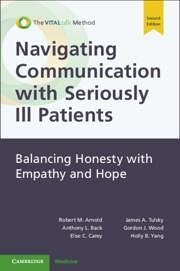
Talking Points on Deprescribing in Hospice Care
Versandkostenfrei!
Versandfertig in 1-2 Wochen
32,99 €
inkl. MwSt.
Weitere Ausgaben:

PAYBACK Punkte
16 °P sammeln!
Deprescribing practice in hospice medicine has expanded exponentially in recent years. This book systematically addresses the groups of extremely useful medications to manage chronic disease conditions and prevent complications.














